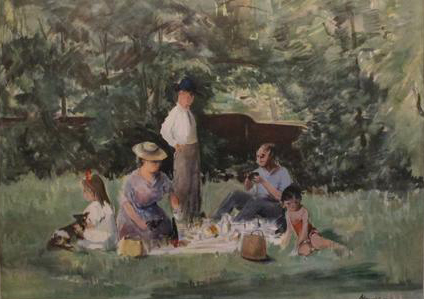 Moynihan’s Picnic was chosen as propaganda for the British Home Front in World War Two. As a war poster, it was displayed in factories and other facilities where war workers congregated as a reminder of the peace and happiness that would prevail when the war was...
Moynihan’s Picnic was chosen as propaganda for the British Home Front in World War Two. As a war poster, it was displayed in factories and other facilities where war workers congregated as a reminder of the peace and happiness that would prevail when the war was...
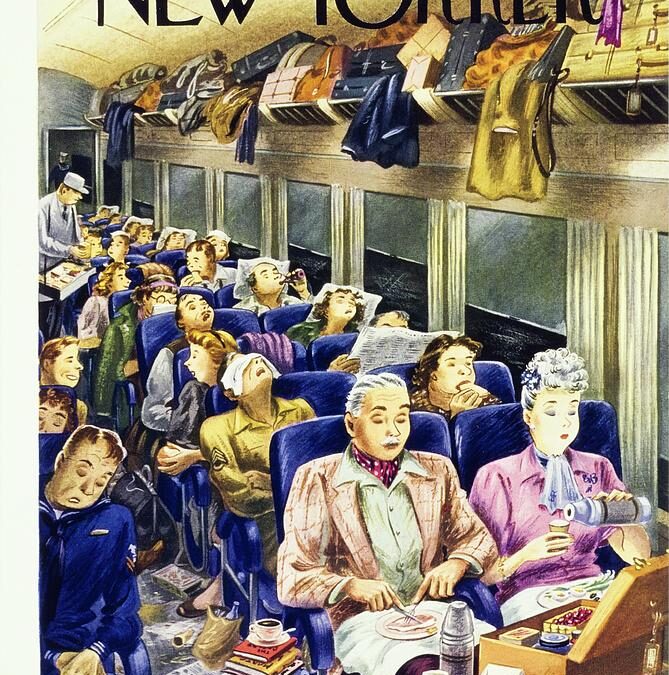 Alajálov commemorated the final year of World War II for The New Yorker (1945) magazine illustrating a coach of a passenger train filled with exhausted, sleeping soldiers and sailors, rumbling on in the dark, while a staid couple eats a picnic meal. The blasé couple...
Alajálov commemorated the final year of World War II for The New Yorker (1945) magazine illustrating a coach of a passenger train filled with exhausted, sleeping soldiers and sailors, rumbling on in the dark, while a staid couple eats a picnic meal. The blasé couple...
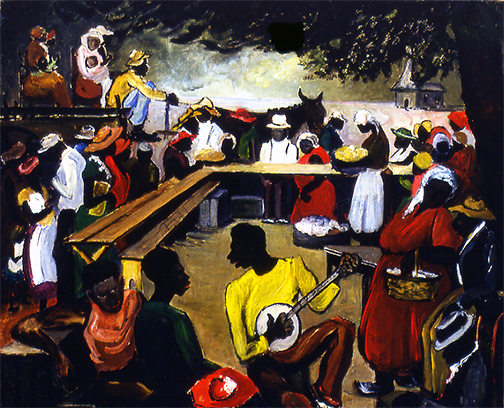 Jones’s Church Supper suggests the celebration of an African American picnic supper, sometimes called Dinner on the Grounds. An event like this is held in summer, usually on the first Sunday in August. It was always, and still is, a revival meeting. And while...
Jones’s Church Supper suggests the celebration of an African American picnic supper, sometimes called Dinner on the Grounds. An event like this is held in summer, usually on the first Sunday in August. It was always, and still is, a revival meeting. And while...
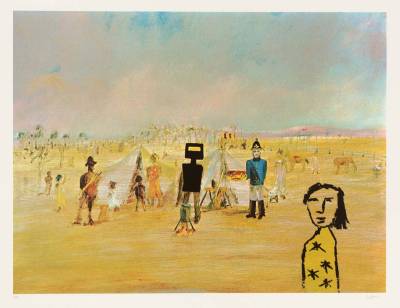 Nolan’s fantasy is that Australia’s most renowned bushranger Ned Kelly enjoyed a bush picnic. His source is probably J. J. Keneally’s sympathetic biography The Complete Inner History of the Kelly Gang (1929), based on which Nolan made two series...
Nolan’s fantasy is that Australia’s most renowned bushranger Ned Kelly enjoyed a bush picnic. His source is probably J. J. Keneally’s sympathetic biography The Complete Inner History of the Kelly Gang (1929), based on which Nolan made two series...
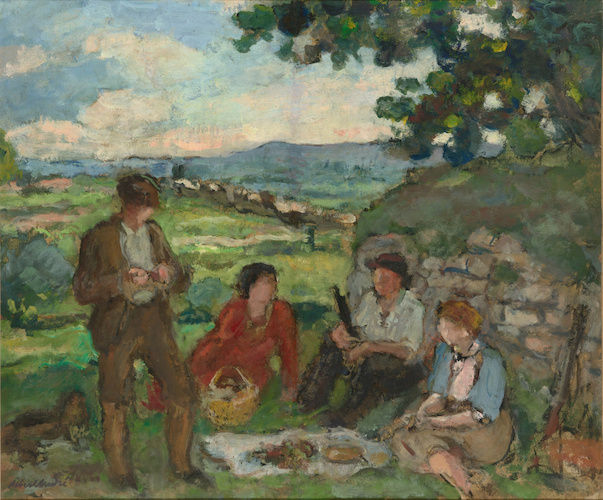 Albert’s Le repos des chasseurs, aka Hunters’ Rest is a scaled down version of the Halt on the Hunt. The simple menu is bread ,fruit, and wine.
Albert’s Le repos des chasseurs, aka Hunters’ Rest is a scaled down version of the Halt on the Hunt. The simple menu is bread ,fruit, and wine.
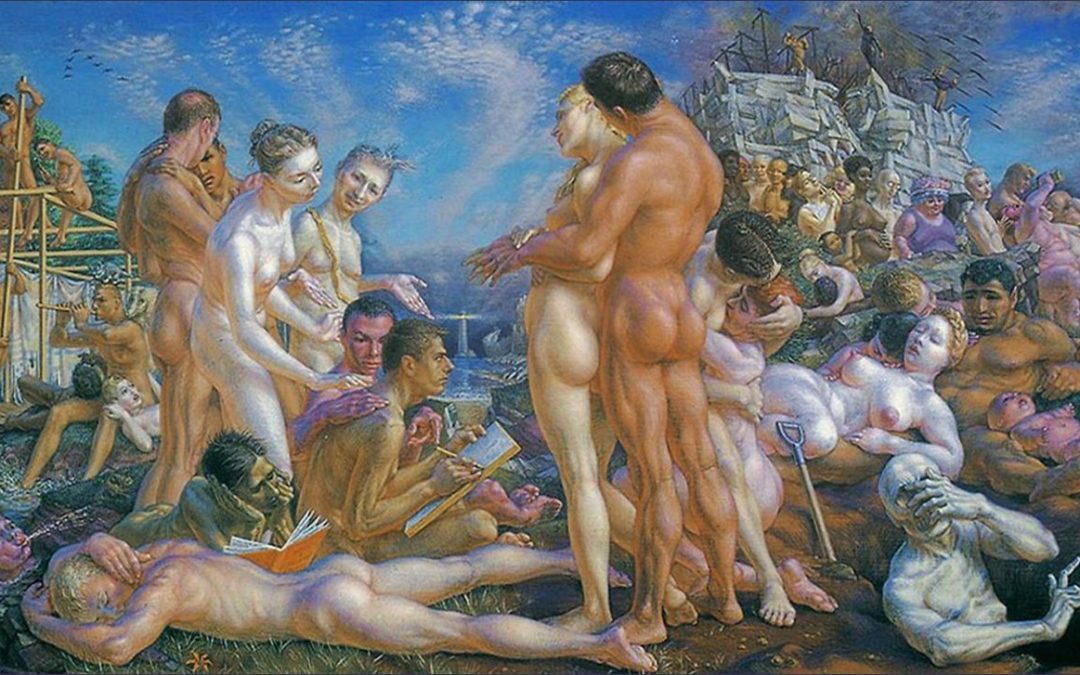 Cadmus’s What I Believe (1947-1948) is a beach picnic without food, inspired by E.M. Forester’s essay of the same-named. Forster is the dark man reading a book with the red cover in the lower left foreground. The figures are based on some of Cadmus’ friends and former...
Cadmus’s What I Believe (1947-1948) is a beach picnic without food, inspired by E.M. Forester’s essay of the same-named. Forster is the dark man reading a book with the red cover in the lower left foreground. The figures are based on some of Cadmus’ friends and former...
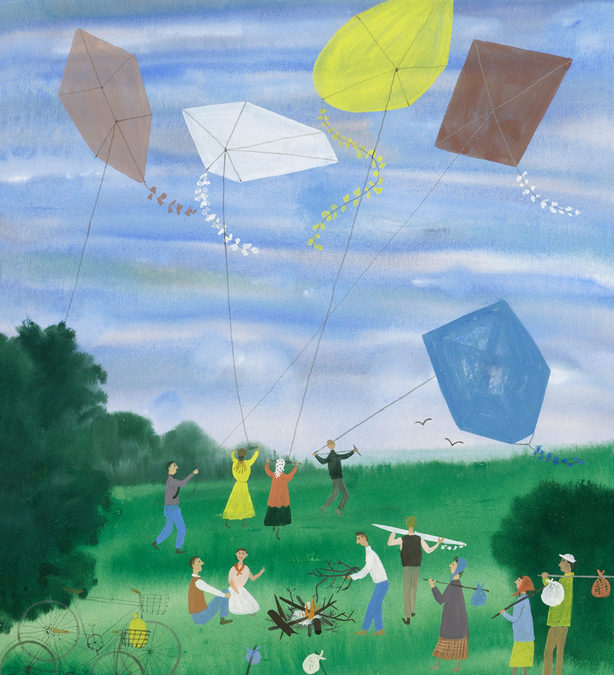 A very happy picnic. See Doris Emrick Lee’s <em>High Flying Picnic</em> (1950). Gouache on board 16.5 x 12.75 in. (41.9 x 32.4 cm.)
A very happy picnic. See Doris Emrick Lee’s <em>High Flying Picnic</em> (1950). Gouache on board 16.5 x 12.75 in. (41.9 x 32.4 cm.)
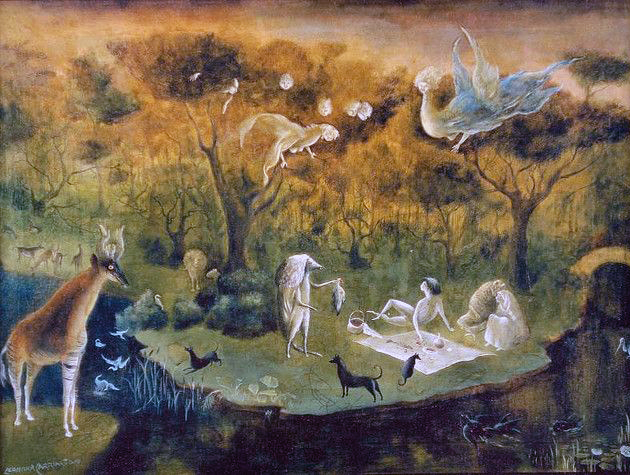 As with many of Carrington’s surrealistic paintings, they are enigmas. Maybe they are snapshots of her inner life—a mix of personal relationships, dreams, alchemy, astrology, myth, and probably alcohol and drugs. You may find the compositions appealing dream-visions...
As with many of Carrington’s surrealistic paintings, they are enigmas. Maybe they are snapshots of her inner life—a mix of personal relationships, dreams, alchemy, astrology, myth, and probably alcohol and drugs. You may find the compositions appealing dream-visions...
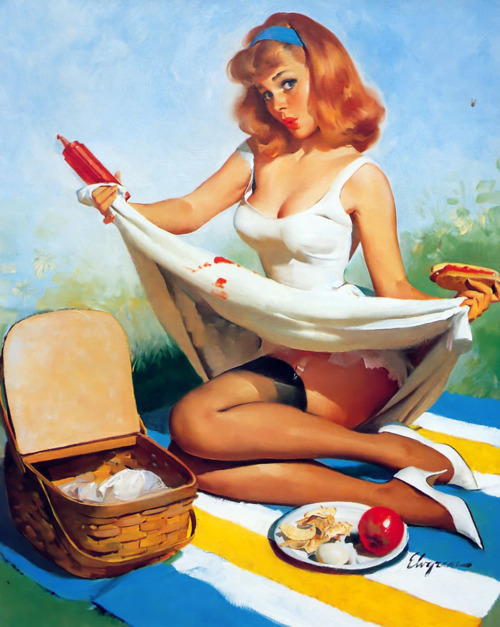 Pin-up art often graced garage walls, industrial factories, barbershops, or other places where men dominated the w Pinup art often graced garage walls, industrial factories, barbershops, or other places where men presume dominated the working world in the 1940s...
Pin-up art often graced garage walls, industrial factories, barbershops, or other places where men dominated the w Pinup art often graced garage walls, industrial factories, barbershops, or other places where men presume dominated the working world in the 1940s...
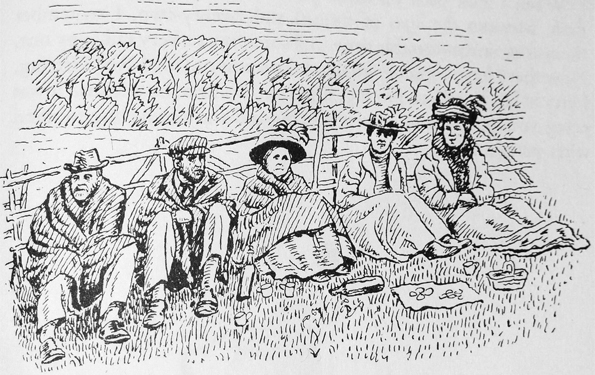 “Heroic Survivors of the Picnic.” is Gwen Raverat’s bittersweet memory of a miserable picnic. It’s the next-to-last anecdote in her memoir Period Piece: A Cambridge Childhood. I think she means to suggest that life was no picnic but that she...
“Heroic Survivors of the Picnic.” is Gwen Raverat’s bittersweet memory of a miserable picnic. It’s the next-to-last anecdote in her memoir Period Piece: A Cambridge Childhood. I think she means to suggest that life was no picnic but that she...











